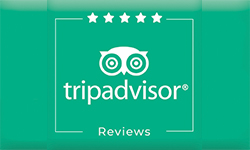5 Days Kilimanjaro hike via Marangu route.
On this 5-day hike, you will follow a gradual path up Kilimanjaro spending your nights in huts, this hike is recommended for the rainy season & for those who can’t consider the camping option however, you should add an extra day for acclimatization to improve your summit chances
Trip Highlights
- only route with hut accommodation
Day 1:Drive to Kilimanjaro National Park Marangu Gate, Hike to Mandara Hut
– Walk through the rainforest to the Mandara encampment.
– A side trip to Maundi Crater is a good way to see the surroundings including Northern Tanzania and Kenya. In the rainforest, look for towering Eucalyptus trees, birdlife, and Colobus monkeys.
– Elevation: 1860m/6100ft to 2700m/8875ft
– Distance: 8km/5mi
– Hiking Time: 3-4 hours
– Habitat: Rainforest
– Meals: Breakfast, Lunch, Dinner
Day 2:Hike Mandara Hut to Horombo Hut
You leave the glades of the rainforest and follow an ascending path on the open moorlands to the Horombo encampment. Views of Mawenzi and the summit of Kibo are amazing. Look for giant lobelias and groundsels.
– At this point, you may begin to feel the effects of the altitude.
– Elevation: 2700m/8875ft to 3700m/12,200ft
– Distance: 12km/7.5mi
– Hiking Time: 5-6 hours
– Habitat: Heathland
– Meals: Breakfast, Lunch, Dinner
Day 3:Hike Horombo Hut to Kibo Hut
– Dinner, rest and prepare for the summit climb.
– Elevation: 3700m/12,200ft to 4700m/15,500ft
– Distance: 9km/5.5mi
– Hiking Time: 5-6 hours
– Habitat: Alpine Desert
– Meals: Breakfast, Lunch, Dinner
Day 4: Hike Kibo Hut to Summit, and down to Horombo Hut
Very early in the morning (midnight to 2:00 AM), commence the climb to the summit on steep and heavy scree or snow up to Gilman’s point located on the crater rim.
– Continuing, we now ascend to Uhuru Peak, which is the highest point in Africa. There are unbelievable views at every turn. Have your picture taken at the summit to show your friends and family.
– From here we descend, stopping for lunch and a rest at Kibo before continuing on to the Horombo encampment.
– The beginning of this climb is done in the dark and requires headlamps or flashlights.
– It will be very cold until you start descending, so you will need all of your warm layers.
– This is by far the most difficult part of the trek with many switchbacks. Going slowly “pole pole” and an optimistic attitude will get you there!
– Elevation: 4700m/15,500ft to 5895m/19,340ft
– Down to 3700m/12,200ft
– Distance: 6km/4mi up / 15km/9mi down
– Hiking Time: 6-8 hours up / 15km/9mi down
– Habitat: Alpine Desert
– Meals: Breakfast, Lunch, Dinner
Day 5: Hike Horombo Hut to trail head, drive to Arusha or Moshi
– Continue descending through a lush forest path to the National Park gate at Marangu. At lower elevations, it can be wet and muddy. Gaiters and trekking poles will help. Shorts and T-shirts will probably be plenty to wear (keep rain gear and warmer clothing handy).
– Our vehicle will meet you at Marangu gate to drive you back to the hotel or the airport.
– Don’t forget to tip your guides and porters. It is time for celebration!
– Elevation: 3700m/12,200ft to 1700m/5500ft
– Distance: 20km/12.5mi
– Hiking Time: 4-5 hours
– Habitat: Forest.
– Meal: Breakfast.
Prices are Per Person and Valid for Trips from All around the year
| # People in Group: | 1 | 2 | 3,4-5 | 6+ |
| Rate : | $2500 | $1800 | $1700 | $1650 |
| Included | Excluded |
|
|
Note: We have a discount for kids under 15 years old
Kilimanjaro Equipment & Packing List
Sleeping Gear:
❏ Sleeping Bag rated 0°F, -15°F
❏ Sleeping mat : we provide one
❏ Sleeping bag liner (for extra warmth or for rented sleeping bag)
❏ Compression sack for sleeping bag
Packs & Bags:
❏ Waterproof duffel bag 80-100 litres
❏ Daypack 25-35 litres
❏ Waterproof pack cover
❏ Compression sacks or 6-8 waterproof bags
❏ (Optional) Packing cubes to organize your duffel bag
❏ Bag locks for a duffel bag
Footwear & Trekking Poles
❏ Hiking boots – waterproof mid-weight
❏ Running shoes/light hikers (for wearing around camp)
❏ Gaiters
❏ 5-6 pairs liner socks (wool or synthetic, no cotton)
❏ 4-6 pairs thick socks (no cotton!) – thermal socks for summit night
❏ Spare laces for hiking boots
❏ Trekking poles
Gloves
❏ Thin gloves (wool or synthetic, no cotton)
❏ Thick waterproof gloves or mittens
Clothing: Lower Body
❏ Underwear (no cotton)
❏ 1 “Convertibles” or shorts
❏ 1-2 light-medium weight Base layer
❏ Hiking pants (no cotton)
❏ Winter hiking pants
❏ Waterproof shell pants (recommend size zippers)
Clothing: Upper Body
❏ Comfortable sports bra (ladies only)
❏ 1-2 light-weight T-shirts (no cotton)
❏ 1-2 light weight long-sleeved T-shirts (no cotton)
❏ 2-3 Light to mid-weight Base Layer
❏ 1-2 Fleece as insulation layer
❏ Insulated shell jacket
❏ Down jacket (approx 750-fill)
❏ Waterproof shell jacket that fits over all your layers
Headwear
❏ Brim hat or cap with neck protection
❏ Warm hat with ear flaps
❏ Neck gaiter or “Buff” (very versatile)
❏ Sunglasses (rated 100% UV protection)
❏ Headtorch (don’t forget spare batteries)
Water & Snacks
❏ 2-3 litre hydration bladder (Platypus or Camelbak or similar)
❏ 1-2 One-liter wide-mouth water bottle (Nalgene or similar)
❏ Electrolyte/Sports drink powdered formula for adding to your water
❏ Snacks: Energy bars of your preference – plan for 2-4 per day
❏ Water purification tablets or filter pen (we provide boiled/filtered water
$1800 per person
Related Tours
3 Days Tanzania Safaris, Waterfalls And Coffee Tour
- Price: $620 per person
- Tour Type: Budget Safari, Joining Groups
- Place Visited: Arusha, Tarangire, Ngorongoro Crater, Materuni Waterfalls & coffee tour
5 Days Tanzania Safaris, Waterfalls And Coffee Tour
- Price: $1000 per person
- Tour Type: Budget Safari, Joining Groups
- Place Visited: Arusha, Tarangire, Serengeti, Ngorongoro Crater, Materuni Waterfalls & coffee tour
6 Days Tanzania Safari, Culture, Materuni Waterfalls Coffee Tour
- Price: $1200 per person
- Tour Type: Budget Safari, Joining Groups
- Place Visited: Arusha, Tarangire, Serengeti, Lake Manyara, Ngorongoro Crater, Materuni Waterfalls & coffee tour
6 Days Highlights Of Africa Vacation Tour Package Tanzania
- Price: $1250 per person
- Tour Type: Budget Safari, Joining Groups
- Place Visited: Arusha, Tarangire, Serengeti, Lake Manyara, Ngorongoro Crater
4 Day Taste of Tanzania Budget safari
- Price: $900 per person
- Tour Type: Budget Safari, Joining Groups
- Place Visited: Arusha, Tarangire, Serengeti, Ngorongoro Crater
3 Days Safari Serengeti & Ngorongoro Crater
- Price: $750 per person
- Tour Type: Budget Safari, Joining Groups
- Place Visited: Arusha, Serengeti, Ngorongoro Crater






